This post is also available in: Italian
Reading Time: 3 minutesLast October, Microsoft and Docker, Inc. jointly announced plans to bring containers to developers across the Docker and Windows ecosystems via Windows Server Containers, available in the next version of Windows Server. This was for sure a big announce, considering also the containers momentum, but was just an announce, considering that no details was avaiable (and of course none is available yet in the the beta code of Windows Next).
But finally there are the first details about this new technology and how it will work. Microsoft has announce it both on the Windows Server and Azure blog:
- Windows Server Blog: Microsoft Announces New Container Technologies for the Next Generation Cloud
- Microsoft Azure Blog: Microsoft Unveils New Container Technologies for the Next Generation Cloud
 They will be unveiling the first live demonstration in a few weeks, starting at the BUILD conference.
They will be unveiling the first live demonstration in a few weeks, starting at the BUILD conference.
But at least two different type of scenarios and workloads developers can address with those new containers:
- Hyper-V Containers, a new container deployment option with enhanced isolation powered by Hyper-V virtualization
- Nano Server, a minimal footprint installation of Windows Server that is highly optimized for the cloud, and ideal for containers
Those different type of scenarios will bring more flexibility and leveraging from the virtualization experience (but also the operating system knowledge), Microsoft will offer containers with a level of isolation previously reserved only for fully dedicated physical or virtual machines, while maintaining an agile and efficient experience with full Docker cross-platform integration. Through this new first-of-its-kind offering, Hyper-V Containers will ensure code running in one container remains isolated and cannot impact the host operating system or other containers running on the same host.
And what about Microsoft and Docker? Docker plays an important part in enabling the container ecosystem across Linux, Windows Server and the forthcoming Hyper-V Containers. Microsoft have work closely with the Docker community to leverage and extend container innovations in Windows Server and Microsoft Azure, including submitting the development of the Docker engine for Windows Server Containers as an open contribution to the Docker repository on GitHub.
But the big news is the Nano Server that will allow customers to install just the components they require and nothing more. It could be really promising and, from my point of view, also the pilar to build a real markeplace of Windows based appliances and maybe to see an ARM based Windows Server version (but those are just my guess).
Based on the current builds, compared to Server, Nano Server has:
- 93 percent lower VHD size
- 92 percent fewer critical bulletins
- 80 percent fewer reboots





